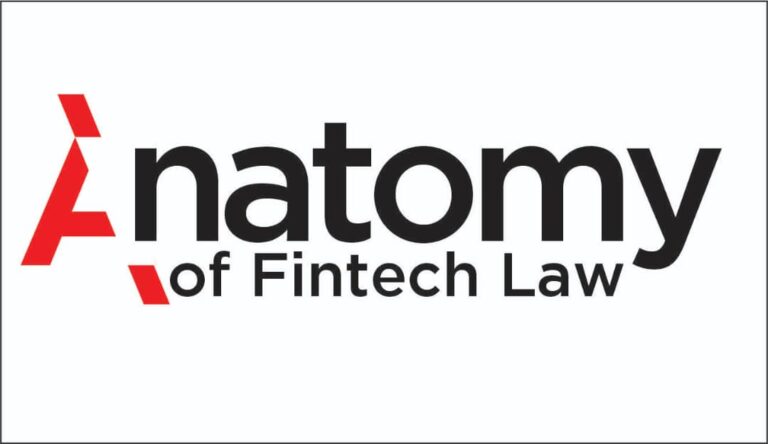Nigeria’s Open Banking Guidelines affirmed the criteria for enrollment on the Open Banking Registry by Tiers zero, one, two and three paricipants.
Introduction
Establishing a robust and secure open banking registry ensures data integrity for product information services, market insights, and credit scoring through consensual sharing of personal information and financial transaction data.
The enrollment criteria on the open banking registry determines the eligibility and suitability of entities seeking to operate on the open banking system.
Participants on the open banking registry include banks and other financial institutions (“OFIs”) such as Fintech and licensed third-party providers (“TPPs”).
TPPs are logistics and courier companies, retailers and supermarkets, Fast-Moving Consumer Goods (FMCGs), and payroll service bureaus.
We examined the entrepreneurial opportunities for TPPs here and the digital financial consumers’ consent requirements here.
Permissible Services in the Open Banking System
Participants listed on the open banking system can exchange the following data and services:
- Information and Service Touchpoints (PIST): product information on products that participants provide to their customers and access points available for customers to access services. Such as ATM, POS or Agent’s locations, channels (website or mobile App) addresses, institution identifiers, service codes, fees, charges and quotes, and rates.
- Market Insight Transactions (MIT): depersonalized statistical data aggregated based on products, services, or Market insight data exchanged at an organizational level or an industry level.
- Personal Information and Financial Transaction (PIFT): individual customer data from KYC (know your customer), number or types of bank accounts or wallet and transaction data.
- Profile, Analytics and Scoring Transaction (PAST): Consumers’ data for credit analysis and scoring or income ratings.
Who can be on the Open Banking Registry?
The Central Bank of Nigeria issued the March 2023 Operational Guidelines for Open Banking in Nigeria (the “Open Banking Guidelines”) under the February 2021 Regulatory Framework in Open Banking in Nigeria (the “Open Banking Regulations”).
The Open Banking Regulations named the stakeholders on the Open Banking Registry and established tiered participation. That is sponsored participants and the sponsors.
An enrollee-participant on the open banking registry who cannot effectively secure a consumer’s consent cannot collate data on the open banking system.
The API (application programming interface) provider and the API consumer must court and retain digital financial consumers’ attention through incentivized and consumer-centred products.
Tiered Participants on the Open Banking Registry
Participants in the open banking registry are categorized as follows:
| Participants Category | Risk Maturity Level (Tiers 0 – 3) | Access Level by Data and
Service Category |
| Participants without
Regulatory licence |
Tier 0 | PIST and MIT |
| Participants through CBN
Regulatory Sandbox |
Tier 1 | PIST, MIT and PIFT |
| Licenced Payments
Service Providers and OFIs |
Tier 2 | PIST, MIT, PIFT and PAST |
| Deposit Money Banks | Tier 3 | PIST, MIT, PIFT and PAST |
Before Seeking to be onboarded on the Open Banking registry
The Open Banking Regulations and Guidelines assume that the enrollee participant is a going concern with an excellent corporate governance and risk ranking.
An entity seeking to participate in the open banking system must be financially stable, enjoy operational capabilities, and comply with relevant laws and regulations.
Our views are consistent with the Central Bank of Nigeria’s mandate to ensure the safety and soundness of the financial sector while promoting fair competition and protecting consumers’ interests.
Enrolment in the Open Banking Registry
For Tier 0
Tiers 2 or 3 may sponsor a Tier 0 participant. Tiers 2 or 3 participants must determine if the enrollee participant can suitably operate on the Open Banking Registry (the “OBR”). Suitability criteria should include governance, risk, and product specification.
The Tier 2 or 3 sponsors will register Tier zero on the CBN’s Open Banking Registry within three working days from the date it onboarded the Tier 0 participant.
A comprehensive risk assessment report, signed by the sponsoring Tier 2 or 3 participants’ Chief Risk Officer, forms part of the required document for registering a Tier zero partticipant on the OBR.
For a Tier 1
Tier 1 participants are responsible for admitting participants to the CBN’s regulatory sandbox cohort. The CBN may, on a case-by-case basis, provide additional enrollment criteria.
For a Tier 2
A Tier 2 participant must hold a valid licence from the Central Bank of Nigeria and submit a satisfactory risk assessment report by at least two partner participants.
The satisfactory risk assessment report should address the Know Your Partner (KYP) protocol regarding business and governance, financial strength analysis, control environment assessment and risk management practices.
The two partner participants issuing the risk assessment report shall include Tier 2 or 3 participants.
For Tier 3
Similarly, a Tier 3 participant shall hold a CBN’s valid licence and submit a satisfactory risk assessment report by at least two partner participants.
The satisfactory risk assessment report should address the Know Your Partner (KYP) regime regarding business and governance, financial strength analysis, control environment assessment and risk management practices.
Finally, the two partner participants issuing the Risk Assessment Report shall include Tier 2 or 3 participants.
Conclusion
Enrollment criteria in Open Banking in Nigeria contribute to stable and resilient data aggregation and intelligence in the financial system, which is crucial for economic and financial inclusion and effective regulatory technology.
The enrollment criteria will promote healthy innovation and collaboration within the financial system. Technological partnership rides on a collaborative culture among stakeholders in the industry.
Non-CBN-regulated entities that want to participate in the OBR must embrace corporate governance – a clear benefit to the Nigerian economy.
Our fintech lawyers are willing to accompany you through your journey. From conceptualization, business structuring, licencing and strategic relationship, fundraising, API compliance audit, sandbox testing, integration, deployment, to Go Live – the entire funding cycle. Would you consider speaking with us today or booking a call?

